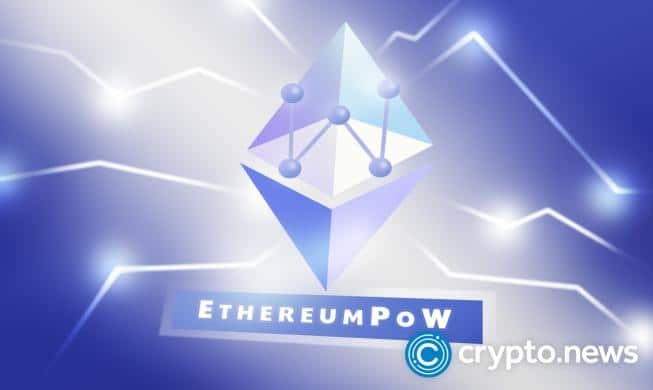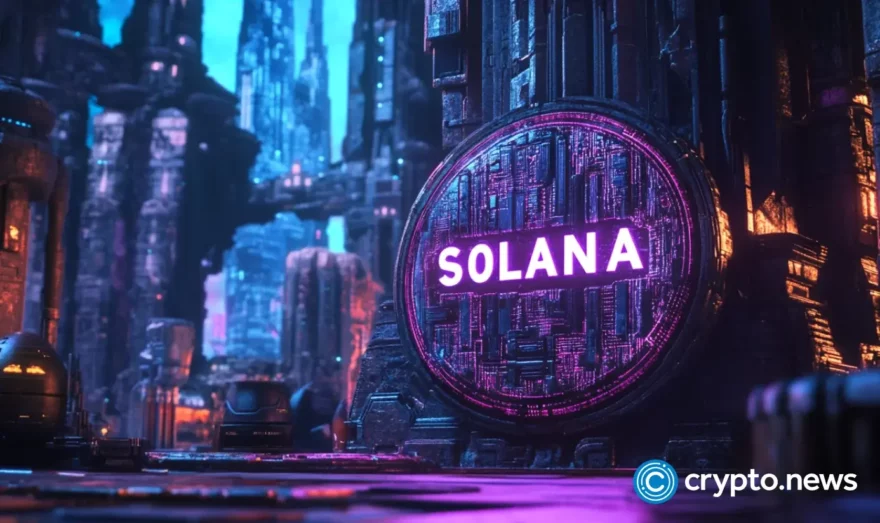ETHPoW Team Retaliates ETC Cooperative, Claims Miner-Led “Hard Fork Is Inevitable”

The ETHPoW team published an open letter claiming its proof-of-work fork of Ethereum was “inevitable.” The project has removed the “difficulty bomb” from its version of the Ethereum code in order to prepare for the fork.
ETHPoW Team Updates ETC Cooperative Regarding Hard Fork
ETHPoW issued an open letter to ETC Cooperative, the Ethereum Classic development team. This was in response to ETC Cooperative’s previous letter to Chandler Guo, which discussed why the ETHPoW fork would fail and why miners should move to Ethereum Classic.
ETHPoW is an intended fork of Ethereum. It is being led by miner Chandler Guo and aims to fork off from the main Ethereum network. Guo asserts that the fork will allow miners to continue mining operations following Ethereum’s shift to a proof-of-stake consensus, also known as the merge. However, this would lead to the creation of two blockchains, each with its own version of the protocols and tokens that run on the chain.
According to the statement, Ethereum Classic will not be able to accommodate all of the existing Ethereum miners. As a result, it claims that multiple PoW forks are required.
“The small pool of ETC cannot hold the entire computing power pool of ETH at all. This is a hard fact. In the face of such hard facts, this hard fork is inevitable,” the ETHPoW team said.
The project also revealed details about its preparations. The team stated that it had eliminated the “difficulty bomb” feature from its version of the Ethereum code, among other development changes.
The difficulty bomb is a mechanism designed by Ethereum’s core developers to prevent miners from hindering the merge by making Ethereum blocks more difficult to mine. By discarding this mechanism, ETHPoW hopes to enable miners to conveniently generate new blocks when its fork occurs.
Furthermore, the ETHPoW team provided information on other developments. It stated that it intends to create an ETHPoW testnet where developers can test the fork code before it is deployed. The team also claimed to have improved protection against replay attacks, a type of network exploit that can occur during blockchain forks, by updating the chain ID, a network identifier used to connect to crypto wallets.
According to the letter, the ETHPoW would carry out the fork in September, possibly around the same time as the merge.
Ethereum’s Move to PoS Inches Closer
The “Merge” refers to the event at which the current proof-of-work (PoW) Ethereum mainnet protocol will merge with the proof-of-stake (PoS) blockchain system of the Beacon Chain and continue as PoS.
On August 12, the leading smart contract blockchain finished its final Merge test on the Goerli testnet, bringing the network one step closer to the actual event.
On September 6, an upgrade called Bellatrix is scheduled to go live, and the second stage of the Merge, known as Paris, is scheduled to take place between September 15 and September 16.
Earlier in July, Ethereum’s creator Vitalik Buterin announced the next steps in the network’s roadmap at the annual Ethereum Community Conference (EthCC) in Paris. Post-Merge, the Surge, the Verge, the Purge, and the Splurge will continue to enhance the scalability and security of Ethereum’s proof-of-stake blockchain.
The “Surge” is the first major step toward scaling, with the introduction of sharding, or side-chains, in 2023. Buterin stated that by the end of this roadmap, Ethereum “will be able to process 100,000 transactions per second.”
This stage of development will benefit network users more because it will reduce transaction costs and times, which are currently one of the drawbacks of using layer-1 Ethereum.
The “Verge” introduces “Verkle Trees,” a “powerful upgrade to Merkle proofs that permits significantly smaller proof sizes.” It is essentially another scaling upgrade that optimizes network storage while reducing node size.
The “Purge” is a cleanup phase that removes some historical data to simplify storage and reduce network congestion.
Finally, there is a “Splurge” upgrade, which consists of a number of smaller upgrades and fine-tuning to ensure that the network continues to operate smoothly after the prior upgrades.















